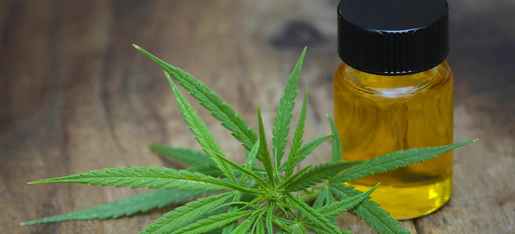Can Taking CBD Give You a Headache?
You may feel a little bit dizzy when you take CBD. Because the effects of CBD are dependent on how your body prepares itself for following hours, that's why you might be suffering from headaches. It is crucial to record your experiences during the initial days after you start using CBD so that you know the appropriate dosage and schedule.
Cannabidiol
Studies show that cannabidiol (CBD) may help ease a headache. It does this by binding to CB1 receptors that are found in the nervous and brain systems, which reduces the sensation of pain. Research suggests that mixing CBD together with THC can help improve pain treatment. Furthermore, full-spectrum CBD oil can help to reduce effects of chronic migraines.
Migraine symptoms can range from severe to moderate pain that may cause a pulse or throb. It can happen on either or both sides of the head the back or front or around the eyes or behind the cheeks. The exact cause behind migraines is not identified, however it is thought to result from the action of specific nerves located in blood vessels transmitting signals to the brain that induce the release of inflammation-causing substances.
The efficacy of medical cannabis for headaches and migraines is debated, but. In ethnobotanical studies, there is evidence of its effectiveness in reducing intensity and frequency of migraines as biochemical studies of THC and anandamide have offered scientific proof for the use of cannabis. There are studies that show that synthetic cannabinoids can effectively manage the pain.
CBD
If you are suffering from chronic headaches, CBD can help. Recent research has shown that CBD can decrease the frequency of headaches from 25% to 55 percent. The study was conducted with a group of patients suffering from chronic migraines. The patients were prescribed a mixture of CBD and THC to alleviate their symptoms. Within 90 days, the patients noticed a decrease in discomfort. The results of the study are promising.
Although CBD is well-known for its medicinal properties, there are some negative side effects that are undesirable. A few people have reported having headaches following the use of CBD. CBD may cause nausea or diarrhea in certain cases. It could also trigger drowsiness and low blood pressure. If you're using CBD to treat pain, talk to your doctor to confirm that CBD is safe for you.
Many people believe that CBD could help relieve tension headaches. These frequent disorders are caused by depression, insomnia or withdrawal from caffeine. However, this is not a complete cure for headaches. CBD could be helpful in relieving depression and anxiety symptoms. CBD can also help with insomnia and may help you get to sleep better.
Sedative effects
CBD has sedative properties for both animals and humans. CBD alters the amygdala within the brain. It plays a crucial role in fear and anxiety. It is activated during fear conditioning, processing anxious faces, and during pharmacologically-induced anxiety. CBD can modulate the activity of this area, which can have numerous positive effects.
Recent research has revealed that CBD can reduce resting activity in areas of the limbic and paralimbic brain. Both brain regions are commonly involved in the pathophysiology of anxiety disorders. In the study, CBD was found to significantly reduce activity in the left medial temporal cluster, which includes the hippocampus, amygdala, and hypothalamus.
The sedative effects of CBD are also experienced for a longer amount of time than with other sedative agents. CBD reduces cortisol, which is the principal stress hormone. Numerous companies offer sleep-inducing CBD products, and they are readily available in the market today. There are numerous options to choose from with various CBD concentrations, varieties of extract and other ingredients. Organic ingredients are a typical ingredient in the best CBD sleep products.
Rebound headaches
Taking painkillers for headaches is a common way to deal with a pounding head. While it's an effective way for temporary relief however, it could also lead to rebound headaches. According to the World Health Organization, as high as 5% suffer from headaches as a result of the use of too much medication.
A lot of people use pain medications due to the fact that they can give you an energy boost. There are many kinds of painkillers that can reduce your symptoms without giving you the "high" sensation. Some, like CBD can be legally legal in several states for medical purposes. CBD is a chemical that is not psychoactive found in cannabis that is known to relieve fatigue, headaches and other symptoms. CBD also has evidence for treating chronic pain.
Researchers at Stanford University discovered that chronic migraine sufferers who used cannabis were more likely than those who did not use cannabis to suffer from the occurrence of a headache rebound. This is referred to as"medication overload headache. "medication over-headache", and it is caused by migraine sufferers who use too many painkillers.
| Phone | 13369074585 | ||
| Address |
5700 W Market St D, Greensboro, NC 27410, United States
|

